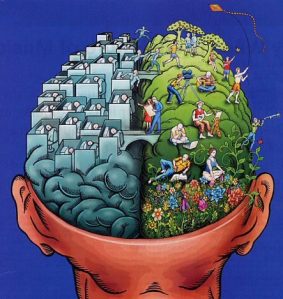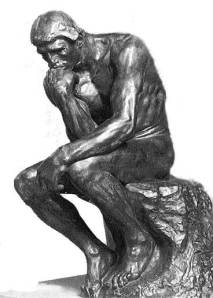The Dreaded Comparison. I find it interesting how we often dread truth. Perhaps ignorance truly is bliss. Regardless, I find the comparisons between animal cruelty and slavery worth acknowledgement, but I try to keep in mind some significant differences that if forgotten, could lead us down a slippery slope of moral injustice. Is that not what we try to do as we analyze these blogs? It is our job as students, intellects, and people to seek truth with a critical, yet reasonable eye. It is a tough task, but I work to learn under this responsibility. If I can paradoxically bridge the gap between racism and speciesism while distinguishing the two injustices, I can understand the means by which they can both be avoided.
Similarities and Differences
Here are some inevitable truths that we cannot deny. In both slavery and animal manufacturing, we manipulate life to bring about some commercial benefit. The value of life is degraded by taking away autonomy. One group asserts power, and hence control, over another. “Both humans and animals share the ability to suffer from restricted freedom.” (Dreaded Comparison 31) The degree of moral injustice between the two is much more complex. The difference lies in two aspects. One, putting a value on the life of one being
over another. Two, determining what capabilities ensure a living creature’s right to inalienable rights. In regards to the first, ideally every life entity would be equal and everything would be fine and dandy. However, we live in a world where choices must be made and a hierarchy must be established. When the death of a bird can save the life of a woman, when the death of a spider can save the life of a child, a value of on life must be assigned, at least comparative value. Second, is existing enough to earn rights? Perhaps, abstaining from wrong doing, or Locke’s social contract is what guarantees rights. According to the characters in, “Am I Blue?” we have “forgotten that human animals and nonhuman animals can communicate quite well.” (Anthology 316). Maybe, this communication ensures rights. Regardless, we have determine what gives us the right to control another being, or rather, if we are justified in controlling any life at all.
Different Degrees of Slavery
I own a dog. Am I a “slave owner”? Well, I know that if I exploit children or ethnic people for free labor I am a “slave owner.” What about if I own a slaughterhouse? These questions are all viable in regards to slavery. In all cases I do have control of another being’s freedom. Are they all to some extent wrong? If I own a black slave, even if I treat them well, I am still performing an injustice. By these standards, am I not performing an injustice when assert control over my dachshund’s autonomy?
Speaking up for Justice
IF one believes that both speciesism and racism are definite injustices that should eliminated, then one has a responsibility to fight against such ideologies. This brings about an interesting point. Does this mean that one who embraces vegetarianism, animal rights, and species equality should show disdain towards those who promote species inequality? Is it the job of an anti-speciesist to fight against the butcher, the meat-eater, and the hunter? It might seem ridiculous to demand such proactivity from an anti-speciesist, but would you not ask the same for an advocate of racial equality? If we are to compare the two injustices as equal-or if one finds speciesism worse than racism-than the drive for reform ought to be just as strong.












